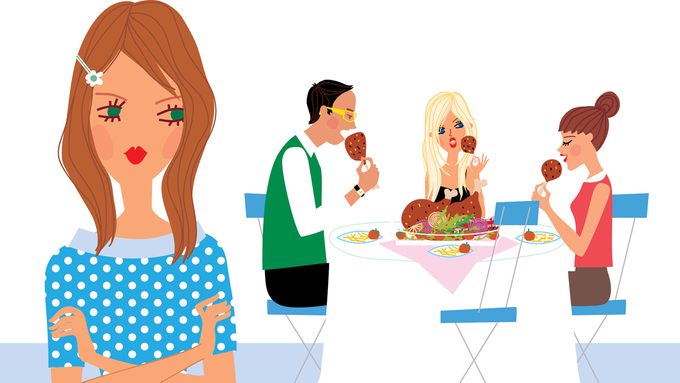How to Help a Loved One with an Eating Disorder
Eating disorders are indisputably tough on families.

“It’s awful to stand by and watch,” says Deborah Berlin-Romalis, executive director of Sheena’s Place. “Early intervention is critical — [an eating disorder] is truly neurobiological and it becomes entrenched.”
But refusing to admit a problem is common — on the part of sufferers, families and friends. She says many women hide behind their busy lives, attributing their weight loss — or weight gain due to binge eating — to stress. Or they pretend to have a food allergy or a condition like gluten intolerance to avoid eating certain foods they believe will increase their weight. “It becomes people’s way of avoiding eating anything,” says Berlin-Romalis. Women in their 40s who are struggling with an eating disorder often end up falling through the cracks.
Families and friends can play a key role in helping the women they love. “To start, if you suspect someone of disordered eating, suspend your judgment and seek guidance from Sheena’s Place or a health-care professional who possesses expertise and skills in addressing eating disorders and/or mental health issues,” she says.
What can you look for?
In the case of anorexia, this includes restricting foods, making food for others but not eating it, or making excuses for not eating. In bulimia or binge eating, excessive amounts of food may be consumed. And bulimics may have lengthy or frequent visits to the bathroom and extensive dental decay. Here’s more on the signs of an eating disorder.
Also, there are support groups you can join for advice and counselling, which can be found on the websites of eating disorder organizations.
As for women who are in danger of serious health issues due to their eating disorders — such as being severely underweight due to anorexia or bulimia or in danger of Type 2 diabetes due to binge eating — they need immediate medical assistance, says Dr. Lara Ostolosky, assistant clinical professor at the University of Alberta. In these cases, they can be admitted to hospital or referred on an urgent basis to a specialist. Failure to act quickly can lead to death.
Finally, you can also conduct an intervention of sorts, which doesn’t blame the person for the disorder but highlights the impact their condition is having. Use words like, “I’m worried about your health.”
The reaction may be hostile. “She’ll try to shut it down,” says Berlin-Romalis. “She might say you’re jealous [of her size]. But don’t take the hostility personally, she says, as it’s a defense mechanism. Offer your support and let her know you won’t be scared away.
Next, learn 13 things psychologists wish you knew about happiness.




